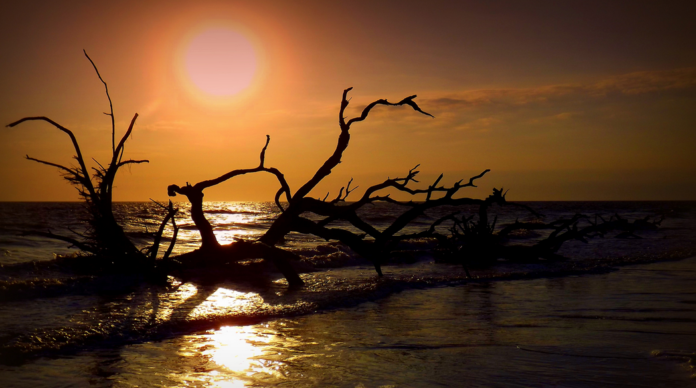Environmental authorities have discovered a sharp decline in the number of nesting sea turtles on Georgia’s Jekyll Island, and it appears that light pollution is to blame. 111 nests were counted on other areas of the island this year, with only 1 discovered on the beaches in front of the newly opened Westin Hotel. Prior to the hotel opening, the beach hosted an average of 8 turtle nests a year. Sea turtles can lay hundreds of eggs in one nest, and the loss of 7 nests is an exponential decrease in the number of potential turtles that have the ability to be born on and live near the island.
A Different Kind of Pollution
The drop in turtle nests around the beachfront property directly corresponds with the opening of the Westin Hotel, which began operating in April, when turtle nesting season was getting underway. The hotel was cited in May by the Georgia Department of Natural Resources Senior Wildlife Biologist, Mark Dodd, for 10 lighting noncompliance issues. The citations include partially shielded fixtures, light leaking from windows and individual lights, such as pool, balcony, and tree lights which are all guilty of light pollution.
Sea turtles face a variety of environmental challenges thanks to mankind, but artificial lighting remains the largest threat. Female sea turtles prefer to nest on quiet, dark. Bright lights discourage them from laying eggs. If they do manage to nest on a brightly lit beach, the resulting hatchlings will be easily disoriented. Upon hatching at night, turtles are usually drawn to the sea by the soft glow of light reflecting off the ocean. Artificial lights draw them inland, where they inevitably can not survive.
An Obvious Solution
Mark Dodd and David Egan, a co-director of the Initiative to Protect Jekyll Island, are in agreement that the height of the building and the lighting violations have created an especially unfriendly zone for sea turtle nesting in the area. Hotel officials have said they are working to achieve compliance, but that there is no time limit due to the complexity of the project. However, according the letters that were sent to the Westin regarding the infractions, once notified they have 10 days to comply before they are considered to be in violation of the terms of the lease.
Incidents like these underscore the importance of developing technologies, such as wildlife friendly LED lighting. While it may not be possible for the hotel to encourage every guest to close their blinds at night, they could easily replace many of the offending outdoor fixtures with amber LED. Amber LED emits light at a frequency and color temperature that does not negatively affect local wildlife. Not only does wildlife friendly LED cut down on light pollution, it also has the undeniable benefits of LED efficiency.




